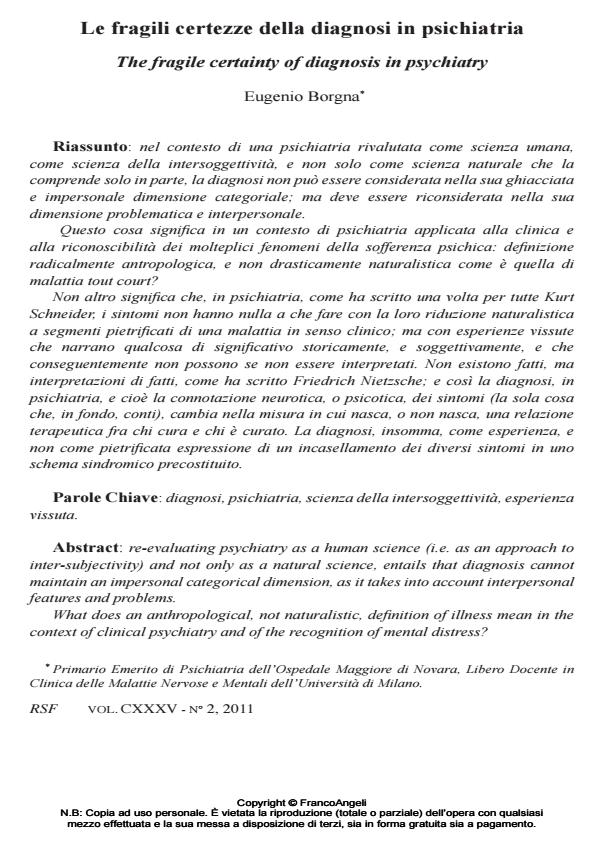The fragile certainty of diagnosis in psychiatry
Journal title RIVISTA SPERIMENTALE DI FRENIATRIA
Author/s Eugenio Borgna
Publishing Year 2011 Issue 2011/2
Language Italian Pages 8 P. 11-18 File size 707 KB
DOI 10.3280/RSF2011-002002
DOI is like a bar code for intellectual property: to have more infomation
click here
Below, you can see the article first page
If you want to buy this article in PDF format, you can do it, following the instructions to buy download credits

FrancoAngeli is member of Publishers International Linking Association, Inc (PILA), a not-for-profit association which run the CrossRef service enabling links to and from online scholarly content.
Re-evaluating psychiatry as a human science (i.e. as an approach to inter-subjectivity) and not only as a natural science, entails that diagnosis cannot maintain an impersonal categorical dimension, as it takes into account interpersonal features and problems. What does an anthropological, not naturalistic, definition of illness mean in the context of clinical psychiatry and of the recognition of mental distress? Symptoms, in psychiatry, as Kurt Schneider stated clearly, have little to do with a reductive naturalistic definition of disease, but are expression of life experiences, historically and subjectively significant, and are thus also to be interpreted. Friedrich Nietzsche wrote that there are no facts, only interpretations of facts. Accordingly, in psychiatry, a diagnosis (that usefully differentiates neurotic from psychotic symptoms) changes in relation to the intensity of the patient- therapist relationship. The diagnosis, in short, is an experience, it cannot be pigeonholed, as a petrified expression of different symptoms, in a previously established syndromic pattern.
Keywords: Diagnosis, psychiatry, science of inter-subjectivity, life experience
Eugenio Borgna, Le fragili certezze della diagnosi in psichiatria in "RIVISTA SPERIMENTALE DI FRENIATRIA" 2/2011, pp 11-18, DOI: 10.3280/RSF2011-002002